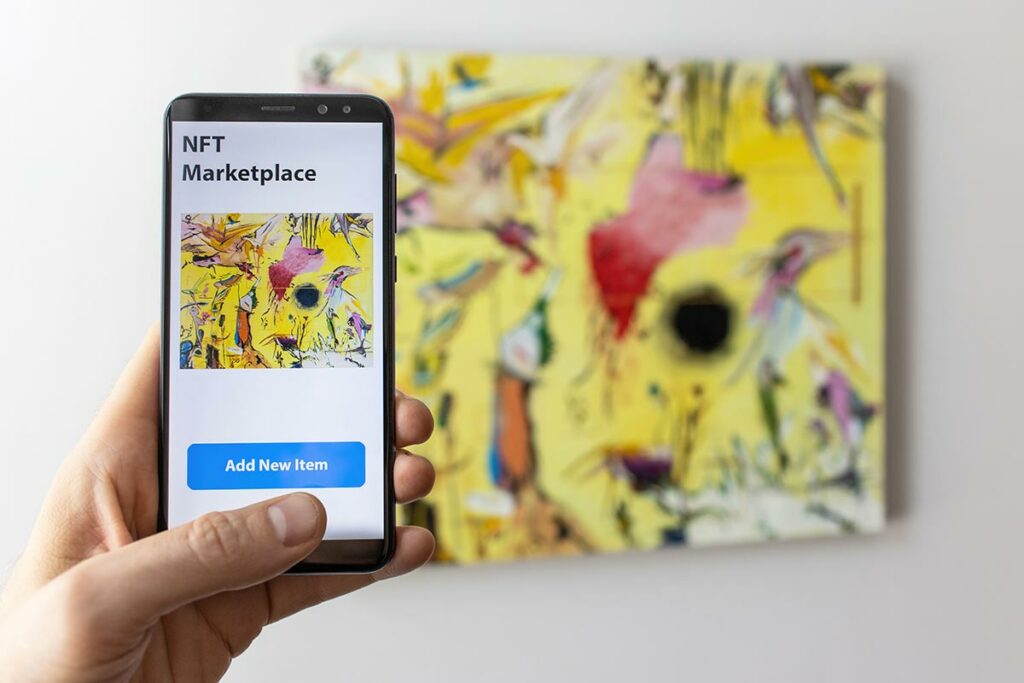In a world where technology keeps advancing, it’s no wonder that businesses are looking for new ways to improve their operations. One of the most promising technologies for business is blockchain and NFTs. These two technologies have the potential to change how transactions are done. In this article we will explore how they can be used to improve business and what the future holds for them!
What Is An NFT?
NFTs, or non-fungible tokens, are unique digital assets and cannot be replaced. Non-fungible means that each token is not interchangeable with another. This is in contrast to fiat currency or cryptocurrencies, which are fungible. Fungible assets can be divided into smaller units and traded for other assets of the same value. For example, you can trade one Bitcoin for two Ethereum tokens.
NFTs appear on a blockchain and can represent anything from digital art to in-game items. NFTs have many potential applications for businesses. For example, they can represent ownership of a physical asset, such as a piece of art or jewelry. They can also represent digital assets, such as a website or an online service.
NFTs are different from other digital assets, such as cryptocurrencies, because they are not interchangeable. Each NFT is unique and has its own value, such as a piece of digital art that can be sold for a specific price. This makes them more like physical assets, such as gold or silver.
One example of an NFT is Cryptokitties. Cryptokitties is a digital game that allows players to breed, raise, and trade virtual cats. Each cat is an NFT that can be sold or traded on the game’s marketplace.
What Is A Blockchain?
A blockchain is a digital, decentralized ledger. It records transactions between two parties securely and transparently. Blockchains are often used to create and track NFTs. Some examples of a blockchain include Ethereum, Bitcoin, and Litecoin.

How Does An NFT Work?
NFTs are created on a blockchain. The creator of the NFT assigns it a unique identifier and stores it on the blockchain. A unique identifier is a code that is used to identify an NFT. It can be a number, a string of characters, or a hash.
Once an NFT is created, it can be bought, sold, or traded. When an NFT is bought or sold, the blockchain records the transaction. This makes it easy to track and manage NFTs. You can find NFTs on marketplaces, such as OpenSea.
How Can NFTs And Blockchain Be Used To Improve Business?
There are many potential benefits of using NFTs and blockchain for businesses. For one, it can help reduce fraud. Since NFTs are stored on a blockchain, they cannot be duplicated or tampered with. This makes them much more secure than traditional assets. Traditional assets run the risk of being counterfeited or stolen. With NFTs, you can ensure that the asset is genuine and has not been tampered with.
Additionally, NFTs could help businesses save money. For example, if a company wanted to sell an NFT, it wouldn’t have to pay any transaction fees. This means that more of the sale price would go to the business.
Another benefit of using NFTs is that they can help businesses track their assets. For example, if a company has an NFT for a piece of art, they can follow when it was sold and for how much. This information can be helpful for businesses when it comes to taxes and accounting.
NFTs also have the potential to help businesses build trust with their customers. For example, if a company sells an NFT for a digital product, such as a piece of software, the customer can be sure that they are getting the product they paid for. The NFT would be stored on a blockchain and could not be tampered with.
Finally, NFTs and blockchain can also help businesses speed up transactions. Traditional methods of transferring assets can take days or even weeks. With NFTs and blockchain, the process can be done in minutes.
What Are Some Examples Of Businesses That Can Benefit From Using NFTs And Blockchain?
Many businesses can benefit from using NFTs and blockchain. For instance, companies that deal in digital art or collectibles can use NFTs to sell their products.
Online marketplaces can also use NFTs to sell items. For example, OpenSea is an online marketplace that specializes in selling NFTs.
Businesses that deal in physical assets can also use NFTs to represent their ownership. For example, a company that owns a piece of art can use an NFT to track and sell the art.
Conclusion
There are many potential benefits of using NFTs and blockchain for businesses. These benefits include reduced fraud, lower transaction costs, the ability to track assets, and faster transactions. NFTs and blockchain also can help enterprises to build trust with their customers. Many businesses can benefit from using NFTs and blockchain, such as businesses that deal in digital art or collectibles, online marketplaces, and companies that own physical assets.




